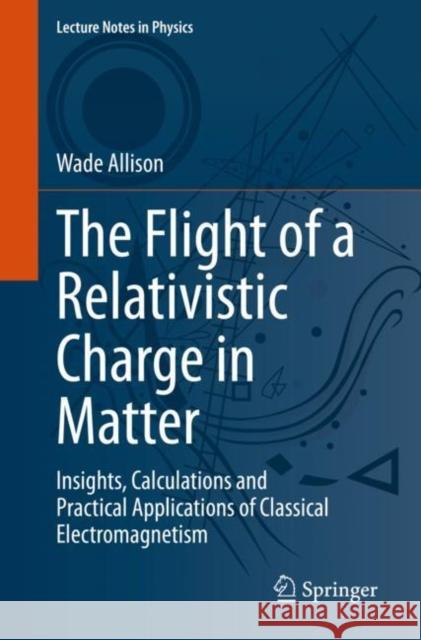The Flight of a Relativistic Charge in Matter: Insights, Calculations and Practical Applications of Classical Electromagnetism » książka
The Flight of a Relativistic Charge in Matter: Insights, Calculations and Practical Applications of Classical Electromagnetism
ISBN-13: 9783031234453 / Angielski / Miękka / 2023 / 127 str.
The Flight of a Relativistic Charge in Matter: Insights, Calculations and Practical Applications of Classical Electromagnetism
ISBN-13: 9783031234453 / Angielski / Miękka / 2023 / 127 str.
(netto: 249,76 VAT: 5%)
Najniższa cena z 30 dni: 250,57 zł
ok. 22 dni roboczych
Bez gwarancji dostawy przed świętami
Darmowa dostawa!
This book is about the energy loss and the coherent radiation emitted by a relativistic charge in matter. These phenomena – locally deposited energy, Cherenkov radiation and transition radiation – are the basis of any charged particle detector able to discriminate charges by their velocity. This book describes these phenomena and how they are related. The fundamental field equations and first principles are used to derive the spectrum of energy-loss signals and thence the velocity resolution that can be achieved. Two specific applications are then followed: the first shows that this resolution has been achieved in practice with a multi-particle detector in the course of an experiment at CERN, and the second shows how, by including scattering, the technique of ionisation cooling of accelerator beams may be reliably simulated. The book is based on a series of lectures given at the University of Oxford to graduate students in experimental particle physics. Some knowledge of mathematical physics at an undergraduate level is assumed, specifically Maxwell’s equations and classical optics.
This book is about the energy loss and the coherent radiation emitted by a relativistic charge in matter. These phenomena – locally deposited energy, Cherenkov radiation and transition radiation – are the basis of any charged particle detector able to discriminate charges by their velocity. This book describes these phenomena and how they are related. The fundamental field equations and first principles are used to derive the spectrum of energy-loss signals and thence the velocity resolution that can be achieved. Two specific applications are then followed: the first shows that this resolution has been achieved in practice with a multi-particle detector in the course of an experiment at CERN, and the second shows how, by including scattering, the technique of ionisation cooling of accelerator beams may be reliably simulated. The book is based on a series of lectures given at the University of Oxford to graduate students in experimental particle physics. Some knowledge of mathematical physics at an undergraduate level is assumed, specifically Maxwell’s equations and classical optics.











